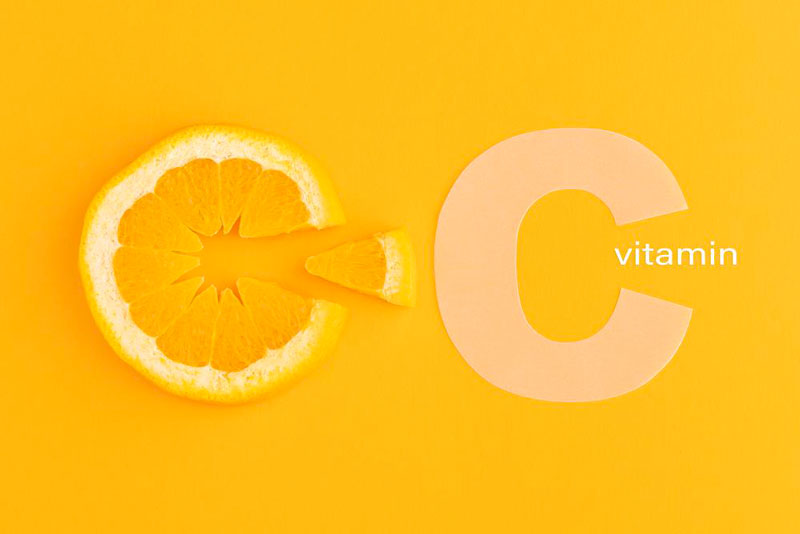1. Why Are Vitamins Essential for Skin Health?
Vitamins are crucial for the overall development of the body, including the skin. A deficiency in certain vitamins can lead to lackluster, rough skin and increase the risk of skin diseases.

Essential Vitamins for Skin Health
For instance, vitamins C and E are important components that help protect the skin from sun damage. A deficiency in these two vitamins can increase the risk of skin cancer and make the skin more vulnerable.
Additionally, other vitamins like A, D, and B are essential for the skin, stimulating cell production and helping to prevent dehydration.
2. Vitamins for Healthy Skin to Supplement
2.1. Vitamin A
Vitamin A protects the skin from the sun’s harmful effects by disrupting collagen breakdown. A deficiency in this vitamin can lead to dry, flaky, and lifeless skin. It also plays a role in exfoliating dead skin cells, slowing down aging, and reducing dark circles around the eyes.
2.2. Vitamin C

Vitamin C has properties similar to antioxidants.
This vitamin is concentrated in both the epidermis and dermis. Vitamin C is a powerful antioxidant that supports collagen synthesis, helping maintain firm skin, stimulates cell regeneration, and reduces dark spots. It is also believed to prevent and reduce wrinkles and dry skin.
2.3. Vitamin D
Vitamin D is primarily absorbed from sunlight and certain foods. It plays an important role in skin tone and helps prevent various skin conditions.
2.4. Vitamin E
Similar to vitamin C, vitamin E is an antioxidant that protects the skin from sun damage and prevents dark spots and wrinkles. The body can synthesize vitamin E from sebum produced in the pores. To supplement vitamin E, you can use topical products or consume it through food.
2.5. Vitamin K
Vitamin K is crucial for blood clotting, helping wounds heal quickly and reducing bruising on the skin. It also aids in scar healing, diminishes dark spots, and reduces dark circles around the eyes. Adults typically need about 90 to 120 micrograms of vitamin K daily.
2.6. Vitamin B
In addition to its importance for the nervous system, vitamin B is also vital for the skin. It helps prevent dehydration and keeps the skin firm.
3. Other Essential Nutrients and Minerals for the Skin
3.1. Protein
Daily protein intake is crucial for forming amino acids needed to synthesize various proteins, including collagen and keratin, which are essential for skin structure. Amino acids derived from protein also help prevent dry skin, and some even have antioxidant properties that protect the skin from harmful agents like UV rays.
3.2. Healthy Fats
Healthy fats, primarily unsaturated fats from plant sources, are essential for moisturizing the skin and maintaining its firmness. Omega-3 is a beneficial unsaturated fat that helps prevent certain chemicals that can cause skin cancer and reduces inflammation.
3.3. Zinc
Zinc helps heal damaged skin and plays a protective role against UV radiation. It has antioxidant properties and is essential for skin development. A deficiency can lead to rashes and itching.
3.4. Magnesium
Magnesium helps prevent aging, retains moisture in the skin, and protects it from environmental harm. It also plays a role in hormone regulation.
3.5. Selenium
Along with magnesium and zinc, selenium is essential for skin health. This antioxidant protects the skin from UV damage, and a deficiency is linked to skin cancer.
3.6. Glutathione
Glutathione is an antioxidant that helps maintain youthful skin. However, its synthesis tends to decline over time, so it’s important to find ways to supplement it to minimize dark spots and inhibit melanin production.
4. Foods Rich in Vitamins and Nutrients for Skin Health

Citrus fruits are rich in Vitamin C.
You can supplement vitamins and nutrients beneficial for the skin through your diet. Here are some foods rich in vitamins and nutrients that promote skin health:
- Foods Rich in Vitamin A: Eggs, dark green vegetables.
- Foods Rich in Vitamin C: Citrus fruits, guavas, bell peppers, spinach, broccoli, parsley.
- Foods Rich in Vitamin D: Fortified cereals, yogurt, oranges, certain fish (tuna, cod, salmon), and sun exposure.
- Foods Rich in Vitamin E: Nuts like sunflower seeds, almonds, hazelnuts, olive oil.
- Foods Rich in Vitamin K: Watercress, kale, cabbage, spinach.
- Foods Rich in Omega-3: Walnuts, various fish.
- Foods Rich in Selenium and Zinc: Eggs.
- Foods Rich in Healthy Protein: Legumes.
- Foods Rich in Glutathione: Avocado, spinach, tomatoes, carrots.





